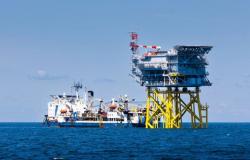Geothermal heat pumps are emerging as an innovative solution to reduce CO2 emissions in urban buildings. Initiatives in cities like Austin and New York are driving the adoption of this technology by reducing costs and promoting its environmental benefits.
Geothermal heat pumps: Sustainable solution for urban buildings
Late last year, startup Bedrock Energy began a project in Austin, Texas, using its novel drilling technology. In a parking lot on South Congress Avenue, Bedrock drilled 11 wells, each 800 feet deep, creating the foundation for a geothermal heating and cooling system. This system allows maintaining a comfortable temperature in a commercial building without using fossil fuels directly.
Innovation and Efficiency
According to Joselyn Lai, co-founder and CEO of Bedrock, a conventional drilling system would have required 30 wells each 91 meters deep to achieve the same heating and cooling capacity. Using its underground modeling software and sensor-equipped drilling tools, Bedrock designed a more space-efficient system, which is crucial in densely populated urban areas.


Benefits of Geothermal Energy
Geothermal energy offers multiple benefits:
- Energy efficiency: Geothermal systems can reduce energy consumption and CO2 emissions by up to 44% compared to air heat pumps, according to the U.S. Department of Energy.
- Reduced Operating Costs: They require less energy to operate, easing pressure on the electrical grid and reducing customers’ energy bills.
- Thermal stability: They use the constant temperature of the subsoil (between 7 and 24 degrees Celsius) to transfer heat efficiently.
Challenges and Solutions in Adoption
Despite their advantages, the adoption of geothermal systems has been limited due to high initial costs and drilling difficulties in urban areas. To address these challenges, Con Edison in New York has launched financial incentives to encourage the adoption of geothermal technology, covering up to $40,000 of eligible costs for thermal conductivity testing.
Future Projects and Expansion
Bedrock Energy is working to reduce the overall costs of geothermal projects by drilling fewer, deeper wells and speeding up the installation process. With the pilot system at Penn Field up and running, the company is in talks with new customers, including commercial building owners in Texas and warehouses in regions with network restrictions.
Geothermal heat pumps represent a promising solution for sustainability in urban buildings. With technological advances and government support, this technology has the potential to transform the way we heat and cool our spaces, significantly reducing carbon emissions and promoting a transition to cleaner energy.
More information: bedrockenergy.com
If you liked this article, share it with your friends on social networks. Thank you!








